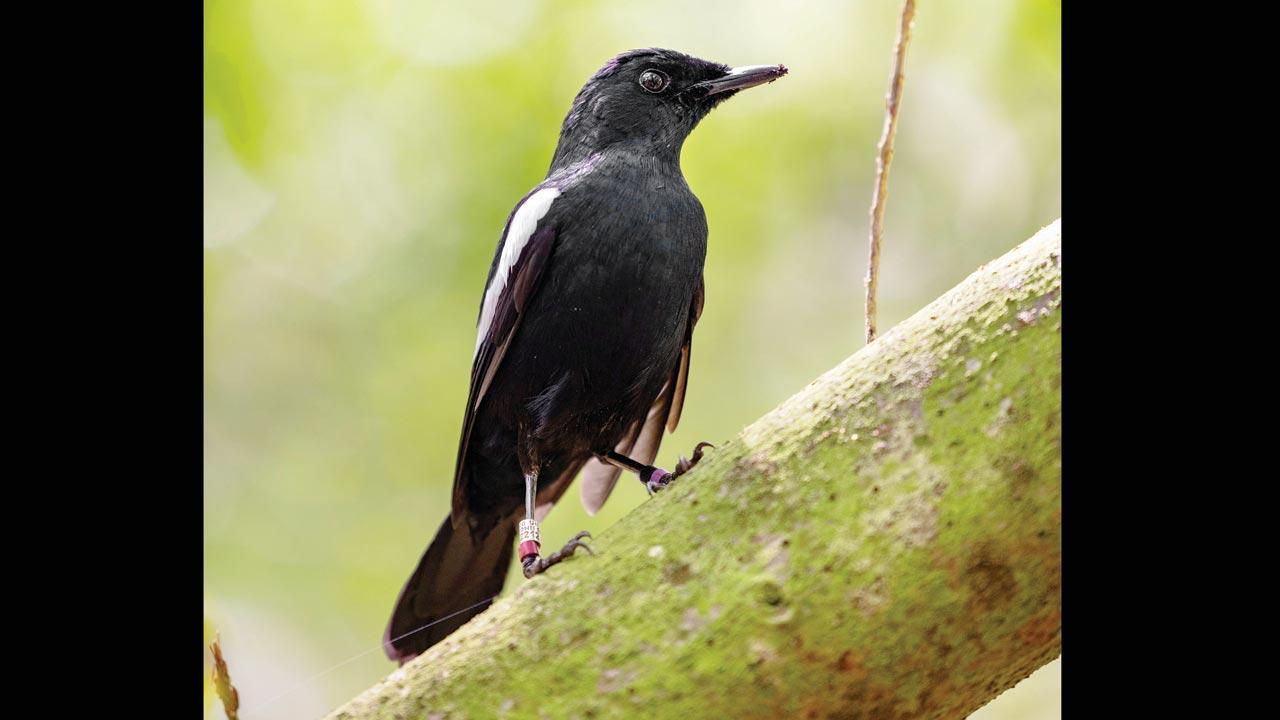The first digital nature collectible launched by environmental organisations aims to harness the credibility and popularity surrounding cryptocurrency in the service of conservation

Digital likenesses of the endangered Seychelles magpie robin—each token representing a living bird currently on Cousin Island in the Seychelles—are being sold as the world’s first digital nature collectibles
They call it the Million Dollar Bird. The Seychelles magpie robin, an endangered species from the Seychelles archipelago, which organisations like Birdlife International have attempted to preserve since the 1990s, has become the world’s first digital species, a veritable frontrunner in the step towards using digital tokens for conservation. Environmental organisation Nature Seychelles, which manages the Cousin Island Special Reserve, recently launched this nature collectible in partnership with the International Union for Conservation of Nature (IUCN) and the Swiss-based NGO Porini Foundation. A limited edition of the first 59 collectibles have been launched, each token a representation or a ‘digital twin’ of a living bird currently on Cousin Island in the Seychelles. All funds generated from the sale of these digital likenesses are being directed towards the protection of the bird.
ADVERTISEMENT
“Funding for long-term conservation in Seychelles and most parts of Africa,” explains Dr Nirmal Shah, CEO of Nature Seychelles, “depends heavily on wildlife tourism or ecotourism. The COVID-19 pandemic crushed tourism and hollowed out our funding mechanisms. Since the Seychelles economy itself is so heavily dependent on tourism, the government and the private sector couldn’t help because everyone was in the same boat. We needed to innovate and go out on a limb.”
The organisation had a few years ago attempted a cryptocurrency initiative with the same partners, and hence, he says, this new move felt like a natural fit.
Dr Nirmal Shah and Richard Peers
Seventy per cent of these digital nature collectibles, Shah informs, have been sold after three weeks of being on sale, with the smaller denomination NFTs (non-fungible tokens) selling out after the launch, followed by those valued at US USD 200 and USD 1,000. “The big ticket collectible worth US USD 10,000 is still up for grabs as are most of the [ones priced at] USD 500.” The collectibles have generated interest in 64 different countries, he shares, the most from the United States—a fact that propels his team in its decision to make more such collectibles available.
“I believe there are thousands of people out there, who are potential customers because either they are environmentally conscious or they would find a nature
collectible just very cool to own and trade,” he says.
Richard Peers, founder of ResponsibleRisk Ltd, which works towards sustainable finance solutions, worked with the Porini Foundation on a workshop on the concept of the nature collectible. He is also the recent owner of one such collectible. “I am very interested in novel ways of financing conservation that enable the citizen and the conservation authority to better engage, see real impact and deliver the urgent funding that is needed,” he shares.
While admitting that a generation of wealthy crypto fans will now be more likely to take this approach than any other, he points out that the advantage of the step lies in the fact that people can see that their investment in a digital token goes directly to the conservation entity. “I think this improves grassroots conservation and will engage people who may have been sceptical that their money will end up in the conservation project rather than with administrators.” Moreover, he points out, “as a portion of any growth in the value of the NFT is shared back with the originator of the token, the potential is even greater,” the goal of the nature collectibles being “to generate recurring funding for special places recognised by the IUCN’s Green List programme.”
“The impact is potentially enormous,” agrees Dr Shah. Besides the fact that NFTs are linked to blockchains that certify the digital asset as unique, thus reassuring buyers “[who are actually donors] that the project or activity they are ‘buying into’ is legitimate,” NFTs are decentralised, he says, and can be used by community groups without going through government agencies. Moreover, allaying concerns that blockchain initiatives elicit environmental cost, Dr Shah assures that “the Porini Foundation has a zero or low carbon blockchain, so again, environmentally-conscious buyers can buy these guilt-free.”
Also Read: India signs crucial deal with Seychelles on Indo-Pacific cooperation
 Subscribe today by clicking the link and stay updated with the latest news!" Click here!
Subscribe today by clicking the link and stay updated with the latest news!" Click here!






